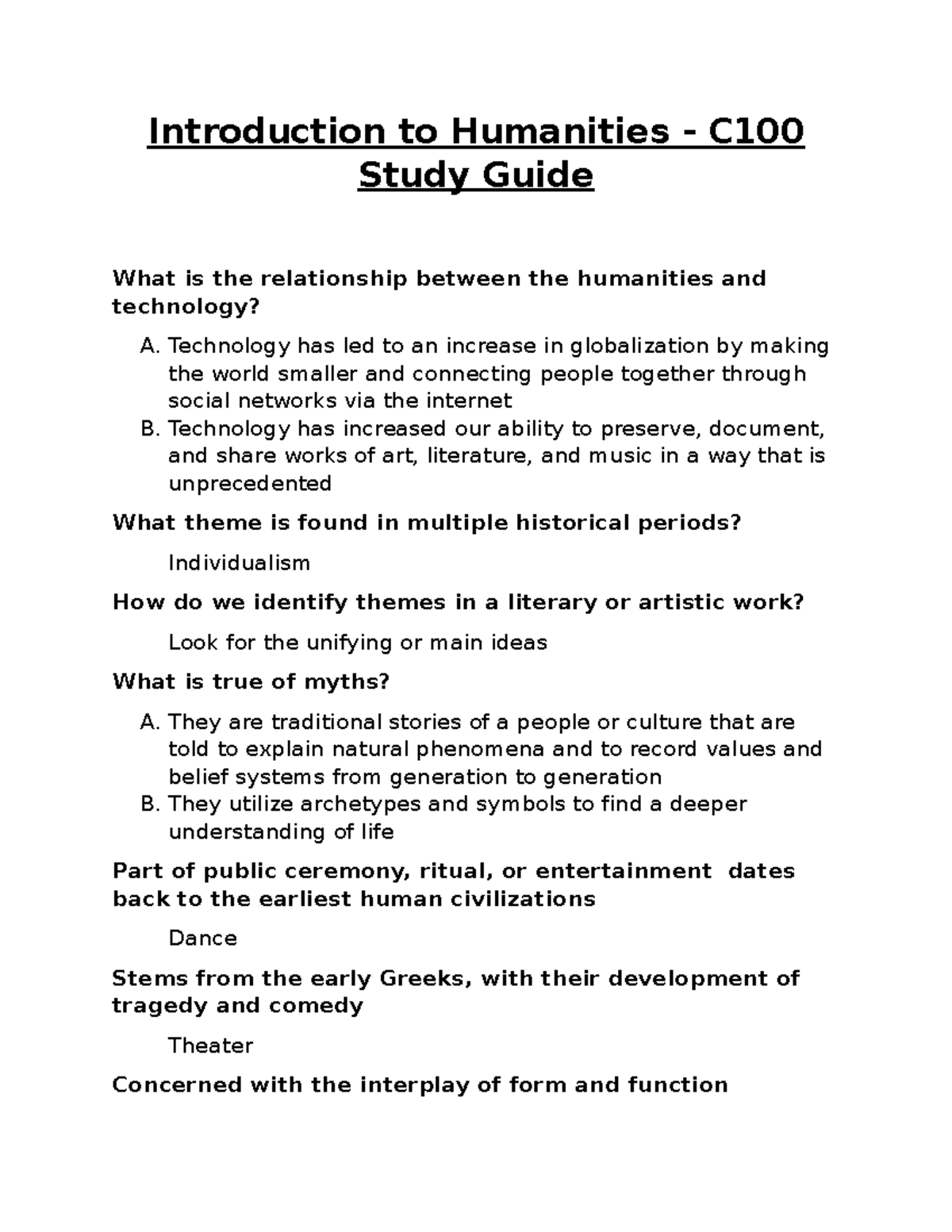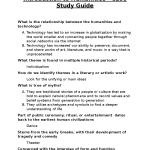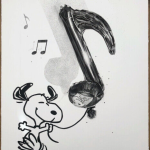Introductory humanities courses are crucial gateways for first-year students to explore the rich fields of arts and humanities, fostering a deeper understanding of human culture and expression. These courses are designed to engage students in meaningful conversations about literature, philosophy, and the arts, addressing the declining student enrollment in humanities disciplines. Through innovative offerings, such as those inspired by the Harvard humanities initiative, educators aim to captivate students and spark their curiosity about the intrinsic value of humanities education. As the demand for transformative learning experiences grows, these introductory courses serve as a vital stepping stone for students to connect with their creative selves. By embracing this importance of humanities education, institutions can encourage a new generation of thinkers who appreciate the complexities of the human experience.
Beginning a journey with introductory courses in the humanities allows aspiring scholars to delve into the diverse realms of culture, literature, and philosophy. These initial offerings provide a comprehensive introduction to key concepts and discussions that define the arts and humanities. By engaging students through innovative and relevant syllabi, educators are responding to the contemporary challenges faced by arts disciplines in academia. Fresh perspectives will encourage first-year students to appreciate the foundational texts and ideas that have shaped human thought. As the importance of humanities studies becomes increasingly apparent, these introductory courses will establish a strong basis for students’ intellectual growth and critical thinking skills.
Revamping Introductory Humanities Courses for First-Year Students
The introduction of nine new humanities courses at Harvard marks a significant shift in how first-year students engage with the arts and humanities. Spearheaded by Dean Sean Kelly, this initiative aims to captivate students’ interest right from their freshman year, addressing the alarming trend of declining enrollment in these crucial fields. Faculty members were encouraged to rethink traditional course designs, aiming to attract students with diverse backgrounds and interests. By focusing on captivating topics and innovative teaching methods, the initiative seeks to transform humanities education into a more dynamic and impactful experience.
Recognizing that many students lose interest in the humanities as they progress, this initiative prioritizes immediate engagement through thematic courses that resonate with contemporary issues, such as culture, migration, and technology. This renewed focus is essential not just for retaining student enrollment but also for preserving the richness of the humanities in higher education. By introducing engaging content that connects to students’ own experiences and identities, these courses aspire to foster a deeper appreciation for the importance of arts and humanities in understanding the human experience.
The Importance of Humanities Education in Today’s Society
In an increasingly technological world, the relevance of humanities education cannot be overstated. Courses that explore human values, creativity, and cultural dynamics equip students with critical thinking skills and emotional intelligence, which are invaluable in any career. By emphasizing the value of humanities, such as ethical reasoning and historical context, students can navigate complex societal challenges more effectively. This holistic approach not only prepares them for roles in various industries but also encourages them to participate in civic life and contribute to a more informed society.
Furthermore, the humanities offer unique insights into the human condition, enabling students to grapple with profound questions about existence, morality, and community. Engaging with literature, philosophy, and the arts helps cultivate empathy and understanding—qualities essential for fostering inclusive and diverse environments. In light of the challenges facing modern society, from political polarization to racial injustice, the critical perspectives gained through humanities courses are indispensable for nurturing informed global citizens dedicated to meaningful change.
Student Enrollment Trends in the Humanities
The trend of declining student enrollment in humanities courses has prompted urgent discussions among educators and institutions. According to recent studies, while about 12 percent of incoming first-year students show initial interest in pursuing arts and humanities, a significant number shift their focus away from these fields before declaring their concentrations. This phenomenon raises alarm for educators who understand the critical role humanities play in crafting well-rounded individuals capable of societal engagement and creative problem-solving.
To counter these trends, universities must adopt proactive strategies that highlight the diverse opportunities available within the humanities. By showcasing successful alumni and their varied career paths, and by emphasizing the intrinsic value of a humanities education, institutions can inspire students to appreciate the rich learning experiences these fields offer. Efforts to revamp introductory courses, making them more relevant and relatable, are pivotal in converting initial interest into sustained engagement among students.
Creative Approaches to the Arts and Humanities Curriculum
As part of the Harvard humanities initiative, the introduction of innovative and diverse course offerings is set to transform the student experience in the arts and humanities. Faculty members are tasked with creating courses that not only resonate with contemporary issues but also appeal to a broader audience by incorporating interdisciplinary approaches. Topics such as medical humanities, migration in film, and the interplay between technology and humanity are just a few examples of how the curriculum is being reimagined to address students’ evolving interests.
Creating a curriculum that blends critical analysis with creative expression allows for a richer educational experience. For instance, courses that combine creative writing with literary analysis empower students to explore their narratives while developing analytical skills. Such integrative learning experiences enable students to see the connections between various disciplines, enhancing their understanding of the complexity and interrelatedness of human experiences. This creative approach is essential for re-engaging students in the arts and humanities fields.
Preparing Students for Diverse Futures Through Humanities Education
In today’s job market, employers increasingly seek candidates who possess strong analytical skills, creativity, and emotional intelligence—attributes that are fostered through a humanities education. Courses that engage students in discussions about morality, culture, and expression prepare them not only for traditional roles but also for leadership positions that require innovative thinking. Humanities education equips students with the tools to navigate and contribute to a rapidly changing world, emphasizing adaptability and lifelong learning.
By integrating practical applications of humanities knowledge into the curriculum, educators can better prepare students for a wide array of careers. For instance, film and literature studies can lead to opportunities in media production, while philosophical inquiry can inform ethical decision-making in various sectors. These practical connections further highlight the vitality of the humanities in ensuring graduates are equipped to thrive in diverse professions, dispelling the myth that a humanities degree limits career potential.
Engaging with Fundamental Human Questions Through Humanities
At the core of humanities education is the exploration of fundamental human questions—topics that resonate deeply with students regardless of their backgrounds. Questions about identity, ethics, love, and technology invite students to reflect on their own experiences while encouraging dialogue with others. By engaging in courses that delve into these profound issues, students are not only challenged intellectually but also prompted to consider their values, beliefs, and roles in society.
Such critical engagement fosters a sense of community among students, as they share diverse perspectives and contribute to a collective understanding of what it means to be human. This collaborative learning environment helps dismantle barriers to dialogue and promotes empathy, making the study of the humanities not only an academic pursuit but also a vital part of personal development. In this way, the humanities serve to unite students around shared human experiences, enriching their educational journey.
Innovative Course Themes Captivating First-Year Students
The introduction of innovative course themes within introductory humanities offerings is a strategic move to captivate first-year students at Harvard. By addressing relevant and provocative topics, such as migration in film and the intersection of humanity and technology, these courses aim to intrigue students and draw them into deeper conversations about societal challenges. Each course is designed to facilitate exploration and discovery, helping students connect their own lives to broader cultural narratives.
This thematic approach not only enhances student engagement but also repositions the humanities as essential fields of study in an increasingly complex world. When students encounter material that relates closely to contemporary issues, they often find the content more relatable and inspiring. Dean Sean Kelly’s commitment to revamping the curriculum illustrates an understanding that in order for students to appreciate the importance of humanities education, the courses must reflect the world around them.
Building a Culture of Appreciation for the Humanities
Fostering a culture of appreciation for the humanities is paramount for universities aiming to revive interest in these disciplines. By promoting the intrinsic value of studying literature, philosophy, and the arts, educators can cultivate a sense of curiosity and passion among students. Initiatives that highlight the transformative power of humanities education can inspire students to delve deeper into their studies, recognizing not just the practical benefits but also the profound insights these subjects offer into the human experience.
Moreover, creating a vibrant community that celebrates humanities can encourage interdisciplinary collaboration and discourse, allowing students to explore connections between various fields of study. Engaging events, discussions, and projects that center on the relevance and impact of the humanities in society will help students understand their significance beyond the academic realm. By actively promoting the humanities as a vital component of education, institutions can contribute to developing thoughtful, engaged citizens who appreciate the complexities of human culture.
Exploring New Pedagogical Methods in Humanities Education
As part of Harvard’s initiative, exploring new pedagogical methods is essential to engaging today’s students in humanities education. Innovative teaching strategies, such as experiential learning, collaborative projects, and digital storytelling, are being integrated into the curriculum to create more interactive and immersive learning experiences. By moving away from traditional lecture formats, courses can become platforms for active engagement, where students can collaborate, discuss, and reflect on various themes and concepts.
These modern teaching methods can make the study of the humanities more accessible and appealing to a new generation of learners. For example, using technology to analyze texts or share personal narratives allows students to engage with course material differently, fostering deeper connections and understanding. As educators embrace these innovative approaches, they will not only attract more students but also instill in them a lifelong love for the arts and humanities.
Frequently Asked Questions
What are introductory humanities courses at Harvard?
Introductory humanities courses at Harvard are foundational classes designed to engage first-year students with the fields of arts and humanities. These courses aim to captivate students’ interests and foster appreciation for literature, philosophy, and art, addressing the nationwide decline in student enrollment in these subjects.
Why is enrollment in introductory humanities courses declining?
Enrollment in introductory humanities courses has declined due to various factors, including limited emphasis on these subjects in American high schools and a shift in student interests. Harvard’s initiative, led by Dean Sean Kelly, aims to counter this trend by offering innovative courses that connect with first-year students, highlighting the fundamental importance of humanities education.
What new courses will be offered in the introductory humanities curriculum?
This academic year, Harvard will launch nine new introductory humanities courses, including ‘Introduction to the Medical and Health Humanities’ and ‘Migration and Border Crossing in Film and Photography.’ These courses are designed to engage students with relevant themes that resonate with their experiences and interests.
How do introductory humanities courses enhance the student experience?
Introductory humanities courses enhance the student experience by providing a diverse range of perspectives and fostering critical thinking skills. They encourage students to explore significant philosophical questions and appreciate the value of literature and art, helping them develop a deeper understanding of human culture and the world around them.
What role do introductory humanities courses play in a first-year student’s education?
Introductory humanities courses play a crucial role in a first-year student’s education by offering a gateway to understanding complex ideas and fostering a broader appreciation for the human experience. They provide foundational knowledge and skills that are essential for engaging in more advanced humanities studies, ultimately shaping students’ academic journeys.
How can students benefit from taking introductory humanities courses?
Students can benefit from taking introductory humanities courses by gaining insights into essential human questions, enhancing their analytical skills, and developing a nuanced understanding of culture and society. These courses also help students engage more deeply with literature, philosophy, and artistic expression, enriching their overall educational experience.
What is the importance of humanities education for first-year students?
The importance of humanities education for first-year students lies in its ability to cultivate critical thinking, creativity, and a deeper understanding of human values. It encourages students to explore what it means to be human, fostering empathy and a sense of connectedness, which are vital for personal and professional growth.
How do the new introductory humanities courses address past curriculum challenges?
The new introductory humanities courses are designed to learn from past curriculum challenges by engaging first-year students with relevant and compelling content, moving beyond outdated debates about ‘great works’ to showcase the diverse and dynamic nature of humanities studies. This approach aims to connect students with the intrinsic value of humanities education.
What teaching methods will be used in the introductory humanities courses?
Teaching methods in the introductory humanities courses will include interactive discussions, critical analysis of texts, and creative writing exercises. Professors will emphasize close reading and analysis, encouraging students to engage with material and express their own perspectives through various assignments and projects.
How can I enroll in introductory humanities courses at Harvard?
To enroll in introductory humanities courses at Harvard, students should consult the university’s course catalog and register for the classes through the student portal during the registration period. It’s recommended to review the course descriptions and prerequisites to find the best fit for their interests.
| Course Title | Instructor | Focus Area | Key Concepts |
|---|---|---|---|
| Introduction to the Medical and Health Humanities | Karen Thornber | ||
| Bob Dylan the Classic | Richard F. Thomas | ||
| Culture in Context | Lauren Kaminsky | ||
| Migration and Border Crossing in Film and Photography | Raquel Vega-Durán | ||
| Humanity, Technology, and Creation | Moira Weigel | ||
| Language | Kathryn Davidson | ||
| Translation and the Craft of Reading Carefully: A World Literature Introduction | Spencer Lee-Lenfield | ||
| The Human Sciences: Fundamentals and Basic Concepts | John T. Hamilton | ||
| Reading for Fiction Writers | Laura van den Berg & Neel Mukherjee |
Summary
Introductory humanities courses are vital for engaging students in the transformative study of arts and humanities. As illustrated by Harvard’s innovative approach, the introduction of new, captivating courses aims not only to increase enrollment but also to enrich students’ understanding of critical human experiences. These new offerings thoughtfully integrate contemporary issues, diverse narratives, and classic literature to foster a deeper appreciation for human culture. By emphasizing the intrinsic value of the humanities, these courses aspire to empower students to explore significant ideas that resonate on personal and societal levels.










